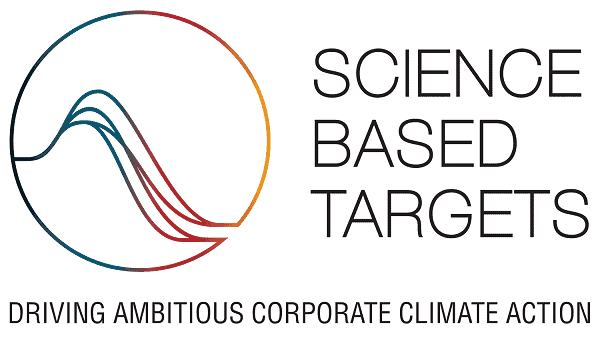环保政策声明
我们深知健康环境的重要性。我们致力于保护自然资源,改善环境的可持续性,并帮助提高我们全球所有工厂所在社区人民的生活质量。我们的环境政策延伸至供应商,作为推动我们供应链行动的承诺。作为此项承诺的一部分,我们在全球范围内建立起一套最佳实践,以便:
- 遵守法律法规,保护我们的环境。
- 遵循统一的行为准则(责任商业联盟),其中包含针对我们的工厂与供应商的环保责任标准。
- 为员工提供培训,以降低发生环境事故的风险。
- 为工厂的有效环保管理系统申请国际标准组织 (ISO) 框架 14001 认证,为其温室气体 (GHG) 排放的设计、收集和验证申请 14064 认证。
- 向 CDP 提交温室气体和用水数据,CDP 是一家推动全球公司和政府进行环境披露和行动的领先组织。CDP 的评估结果将在其网站上披露。
我们的环境政策定期由公司 Amkor 可持续发展团队的高级管理层进行审查,该团队负责制定和实施该环境政策。
减少温室气体排放
我们深知环境责任和长期业务韧性的重要性。我们继续就环境问题与我们的主要利益相关者(包括客户、投资者和员工)进行磋商,减少温室气体排放仍然是我们利益相关者的首要任务。

我们致力于到 2050 年实现全公司净零排放,与科学碳目标倡议 (SBTi) 保持一致。净零目标与 SBTi 设定的严格标准相契合,SBTi 旨在根据《巴黎协定》的目标将全球气温上升限制在 1.5°C 以内。
Amkor 基于科学的净零目标已通过 SBTi 验证,包括:
- 总体净零目标:Amkor 承诺到 2050 年实现整个价值链的温室气体 (GHG) 净零排放目标。
- 近期目标:Amkor 承诺,到 2033 年将范围 1 和范围 2 的温室气体绝对排放量较 2022 年基准减少 55%。Amkor 还承诺,到 2028 年,其 80% 的供应商(按购买的商品和服务以及资本货物的排放量计算)将制定科学减排目标。
- 长期目标:Amkor 承诺,到 2050 年将范围 1 和范围 2 的温室气体绝对排放量较 2022 年基准减少 90%。Amkor 还承诺在同一时间框架内将范围 3 的温室气体排放量减少 97%(按每百万美元增加值计算)。
实现这一目标的关键举措包括将我们的能源消耗转向可再生能源,以及与供应商合作减少供应链中的碳足迹。
我们的节能举措有助于减少温室气体排放。我们将继续寻找机会实施流程优化,提高我们制造工厂的能源效率。
保护水资源
水资源对于我们的生产至关重要,我们深知运营对水资源的潜在不利影响。我们致力于保护水资源,最大限度地减少有害物质排放和相关的水污染,保护我们经营所在社区的淡水生态系统,并不断评估和改进我们的可持续用水实践。
我们的用水目标是,到 2030 年,在 2018 年至 2020 年工厂平均每年用水量的基础上减少 20%。我们继续在我们的制造工厂运行水循环系统,这使我们能够重复使用制造过程中所需的水,并且不断寻找新机会,通过提高用水效率来节约用水。
我们遵循国际框架 (ISO 14001)、广泛采用的 CDP 方法和 RBA 行业标准,指导我们的水资源管理实践,超越水资源管理的监管要求。
我们深知各种环境因素会以复杂的方式影响水资源的可用性和质量,我们将继续使用世界资源研究所 (WRI) “水道”工具评估我们全球工厂的水资源相关风险和压力。
我们认为享有清洁水的权利是一项基本人权,我们致力于向我们的员工和我们经营所在社区推广行之有效的水、环境卫生和个人卫生 (WASH) 实践。
废弃物管理
我们致力于最大限度地减少全球工厂产生的废弃物,并推广可持续的废弃物管理实践。我们实施了以废弃物分类、回收和再利用为重点的废弃物减量计划。
我们的目标是到 2030 年将我们工厂在 2018 年至 2020 年期间产生的年平均废弃物(危险废弃物、焚烧废弃物、回收废弃物和填埋废弃物)减少 20%。
我们持续监控制造过程中产生的废弃物,以便能够充分实施废弃物减量和回收策略。作为我们工作的一部分,我们努力回收材料并尽可能减少填埋场的废弃物。
职业健康与安全政策声明
我们认识到员工健康和安全的重要性,并致力于在全球所有工厂提供安全健康的工作环境。本政策同样适用于我们的供应商。
我们确保我们的活动以保护员工健康和安全的方式进行。为此:
- 我们在全球的所有工厂均已通过国际标准化组织 (ISO) 框架 45001 认证,以执行有效的职业健康和安全管理体系。
- 在业务所在的国家/地区,我们遵守与健康和安全相关的当地法律法规。此外,我们还采用《负责任商业联盟 (RBA) 准则》,其中包括健康和安全的最佳实践行业标准。
- 我们监控与工作有关的伤害和疾病,发现改进的机会,并采取措施以改善员工的健康和安全。
- 我们为员工提供有关健康和安全各个方面的定期培训,包括机器的安全操作、识别有害物质以及实施控制措施以降低风险。我们针对各种类型的灾害制定应急预案,开展定期培训,以防止事故发生,并将事故造成的损失降到最低。
- 我们定期对全球工厂和主要供应商的健康和安全相关实践进行风险评估。我们的风险评估工具包括 RBA 自我评估问卷 (SAQ)。此外,我们还会定期对选定的新供应商和现有供应商进行审计,以评估我们供应链中与健康和安全相关的实践。